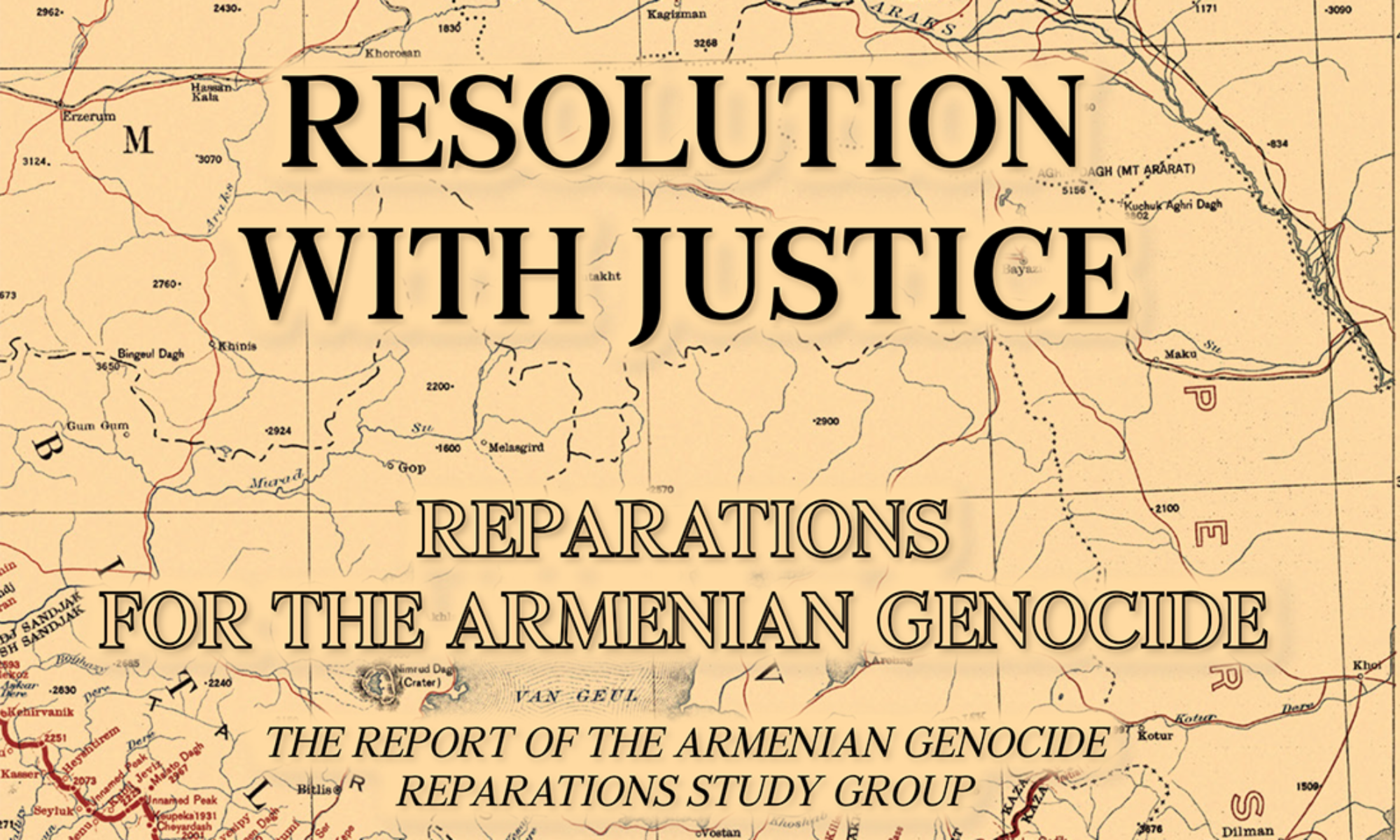- Pursue Genocide Recognition and Reparations, criminal and civil claims, separately, in parallel.
- Genocide is a crime against humanity. Like all criminal acts, condemnation and punishment is the right and duty of the community, here, the community of nations.
- Reparations are compensation of harm. It is an inalienable right of the injured party, founded on independent factual and legal grounds.
- Neither Recognition nor Reparations are bilateral disputes between Armenians & Turks, or Armenia and Turkey – denial and delay have been caused by multiple parties and their proper resolution will require the involvement of all parties in interest
- Recognition and condemnation of the Genocide is the duty of the community of nations
- Reparations involves not only the perpetrators, Turkey and its WWI Allies Germany and Italy, but also Armenia’s WWI allies and other countries that have obstructed, denied or delayed reparations
- Measure of Damages: Restitutio ad integrum.
- The goal of reparations – make the injured party whole. In other words, put the victims in the position they would have been but for the harm. To do so:
- Reversible harm should be reversed
- Irreversible harm should be compensated, typically monetary or other equivalent means
- Reversible harm includes property which can be returned or restored, fully or partially, to its rightful owners (e.g., church property)
- Irreversible harm includes lost lives, lost generations, lost culture, deprivation of Alternative compensation: land, rights (including minority religious or cultural freedoms and security, access to the sea, use, access and preservation of cultural heritage, priority rights or privileges with respect to the natural resources of the homeland, demilitarized zone for security).
- Solid grounds for reversible harm:
- As a matter of international law, Wilsonian Arbitral Award is still valid and enforceable.
- As a matter of international law, the Kemalists post-genocide land grab is unenforceable, even if acquiesced in by Bolshevik Russia. Criminals are not entitled to stolen property
- Turkey’s claims to Ararat, Ani and adjacent Armenian lands are no more defensible than Stalin’s misappropriation of Armenian Nakhichevan and Karabagh.
- The goal of reparations – make the injured party whole. In other words, put the victims in the position they would have been but for the harm. To do so:
- The international standard for compensation is “prompt, adequate and effective.”
- Turkey and its WWI Allies Germany and Italy are primarily responsible for the harm
- Parties that obstruct, deny and delay compensation are also liable, e.g., United States, Russia, Great Britain, France, Israel. All have benefited and continue to benefit from denial and delay in reparations.
- The Armenian Delegation’s 1919 Claim was not given a fair or full hearing at the Paris Peace Conference, but was summarily dismissed by the special Commission headed by US Brig. Gen. Charles McKinstry, without objection from Armenia’s allies, who were fully aware of the devastation suffered by the Armenians.
- The Armenian Delegation’s 1919 Claim is partial, just for human and property loss, submitted on the assumption that Armenia’s victorious allies would restore the Armenian homeland. That claim was 19 bn. Francs, which in today’s terms, by some estimates, would exceed $500 bn. just for human and property loss.
- Peace demands full justice. Unresolved issues sow the seeds of future disputes.
- Lawyer’s duty is to advise the fullest compensation supported by the law and facts.
- At this stage, all potential claims that have a basis in law or justice should be fully considered, claims should not be discounted on grounds of improbability, tactics or strategy.
For further information contact:
Thomas Samuelian, J.D., Ph.D.
tsamuelian@gmail.com

